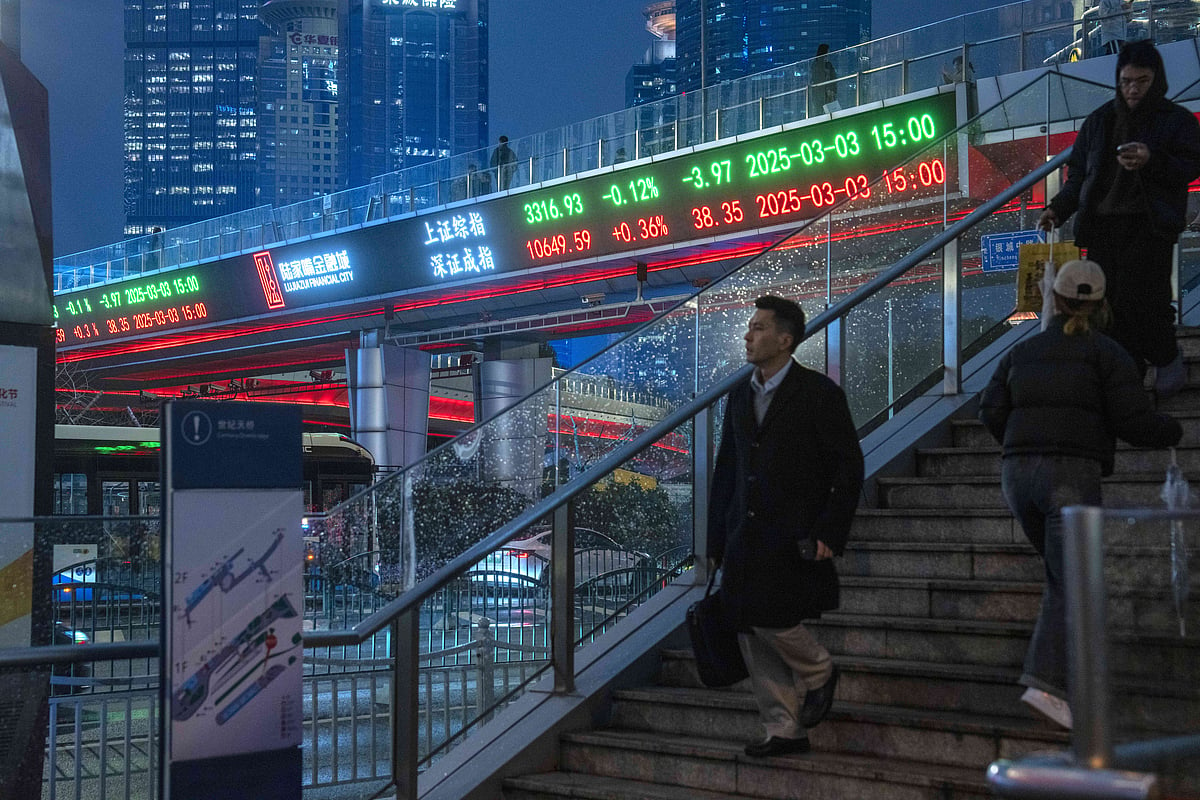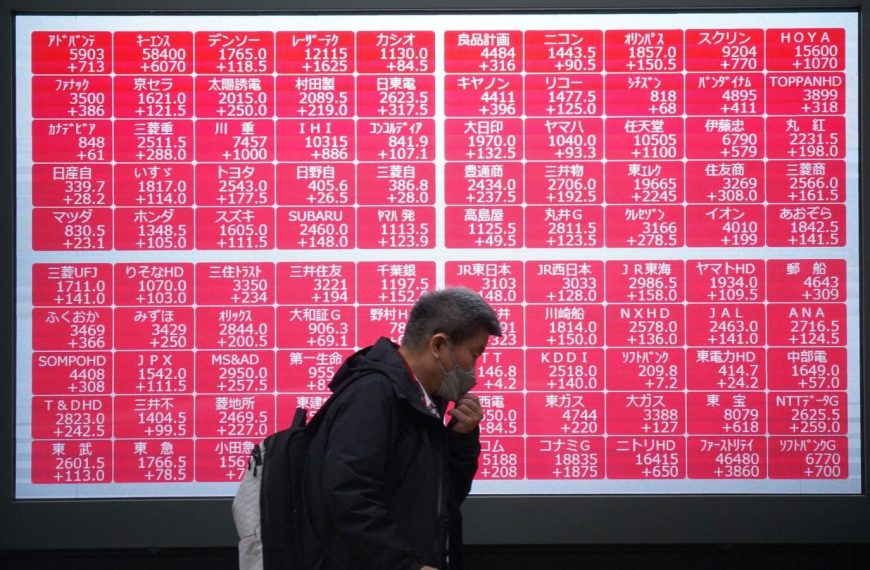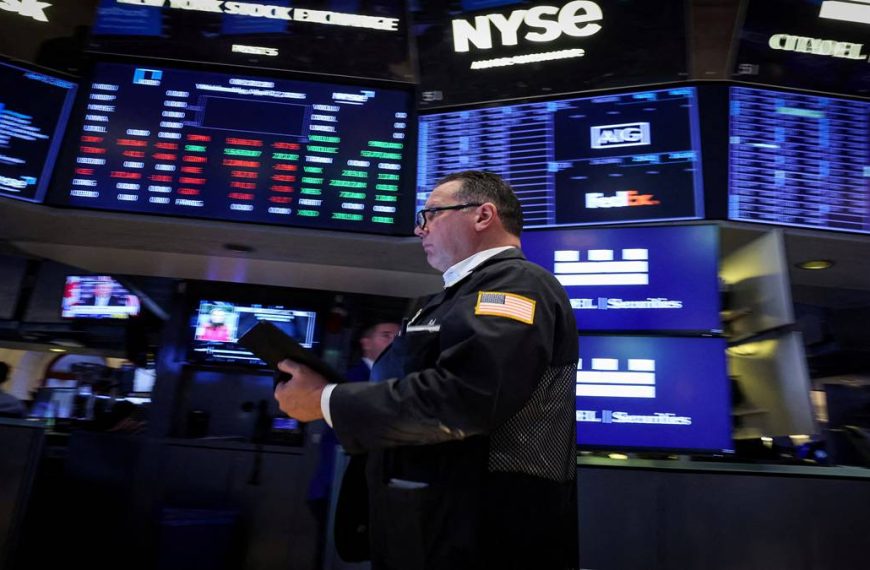Asian stock markets have kicked off the week on a positive note, with Japanese indexes climbing over 1% thanks to significant gains from automotive giants like Toyota Motor Corp. and Honda Motor Co. This surge follows comments from former President Donald Trump, who hinted at a possible pause in auto tariffs, adding optimism to investors after he recently suspended tariffs on certain consumer electronics.
Optimism in Asian Markets
The recent movements in the financial markets signal a recovery from previous turmoil. Trump’s suggestions for temporary tariff exemptions have sparked hopes for potential negotiations, despite his unpredictable policies leaving many investors anxious. JPMorgan Chase & Co. CEO Jamie Dimon has expressed concerns that Trump’s approach to reshaping global trade could lead the U.S. into a recession.
- Key Market Movements:
- Japanese stocks experienced a resurgence, with Hideyuki Ishiguro, chief strategist at Nomura Asset Management, noting that Japanese shares might have reached a low point last week.
- Futures for the S&P 500 have reduced earlier losses, while shares in China and Hong Kong showed mixed reactions at the start.
Tariff Talks and Economic Impact
Trump’s recent comments regarding a temporary exemption for imported vehicles have provided some relief to the automotive sector; however, they also add layers of uncertainty regarding his tariff strategy. The potential for increased auto import levies could lead to higher consumer prices in the U.S. and disrupt automotive supply chains.
Additionally, the U.S. government is moving forward with plans to enforce tariffs on semiconductor and pharmaceutical imports, as trade probes initiated by the Commerce Department signal an escalation in the ongoing trade conflict.
Kyle Rodda, a senior market analyst at Capital.com, highlighted ongoing concerns about the economic impacts, stating, “There is likely still considerable damage being done to the economy, leading to further volatility in risk assets.”
Bond Market Reassurance
Treasury Secretary Scott Bessent downplayed fears surrounding the recent bond market downturn, stressing that there is no evidence of foreign nations offloading U.S. Treasuries. He emphasized that the U.S. remains a global reserve currency and that the Treasury has mechanisms in place to stabilize the market if necessary.
Bessent stated, “We are still a global reserve currency,” reinforcing the idea of a robust dollar policy even as the dollar reached a new low for the year.
Wall Street Insights
Experts from major financial institutions are finding it challenging to predict stock market movements amidst current volatility. Barclays Plc analyst Venu Krishna noted the uncertainty in pricing, while Dubravko Lakos-Bujas from JPMorgan Chase pointed out the difficulties of forecasting in this climate.
Strategic Shifts in Investment
In light of recent developments, strategists at BlackRock Inc. have increased their risk appetite, focusing on U.S. and Japanese stocks after the tariff pause, while avoiding long-term U.S. debt. According to the BlackRock Investment Institute, “The near-term risk of a financial accident has eased,” allowing for a more optimistic view on investments in these markets.
Global Attention on Trade Relations
As the world watches, Chinese President Xi Jinping has embarked on his first overseas trip of the year, landing in Vietnam and planning visits to Malaysia and Cambodia. This trip aims to position China as a more stable partner compared to the U.S. under Trump’s administration.
Economic Predictions
Federal Reserve Governor Christopher Waller outlined two potential scenarios regarding the impacts of Trump’s trade policies on the U.S. economy, predicting that any inflationary effects would likely be temporary. Waller described the new tariff regime as “one of the biggest shocks to affect the U.S. economy in many decades,” suggesting that if inflation rises due to tariffs, rate cuts could be considered for the second half of 2025.
Market Performance Highlights
-
Stocks:
- S&P 500 futures dipped by 0.1%.
- Japan’s Topix increased by 1.4%.
- Australia’s S&P/ASX 200 rose by 0.4%.
- Hong Kong’s Hang Seng remained stable.
- Shanghai Composite fell by 0.3%.
-
Currencies:
- The euro decreased 0.3% to $1.1316.
- The Japanese yen slipped 0.4% to 143.59 per dollar.
- The offshore yuan remained steady at 7.3159 per dollar.
-
Bonds:
- The yield on 10-year Treasuries fell by two basis points to 4.36%.
- Australia’s 10-year yield decreased by seven basis points to 4.34%.
- Commodities:
- West Texas Intermediate crude oil rose 0.3% to $61.69 a barrel.
- Spot gold increased 0.3% to $3,221.09 an ounce.
As we look ahead, the interplay between tariffs, market confidence, and international relations will continue to shape the economic landscape.











